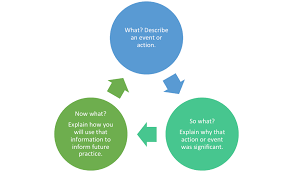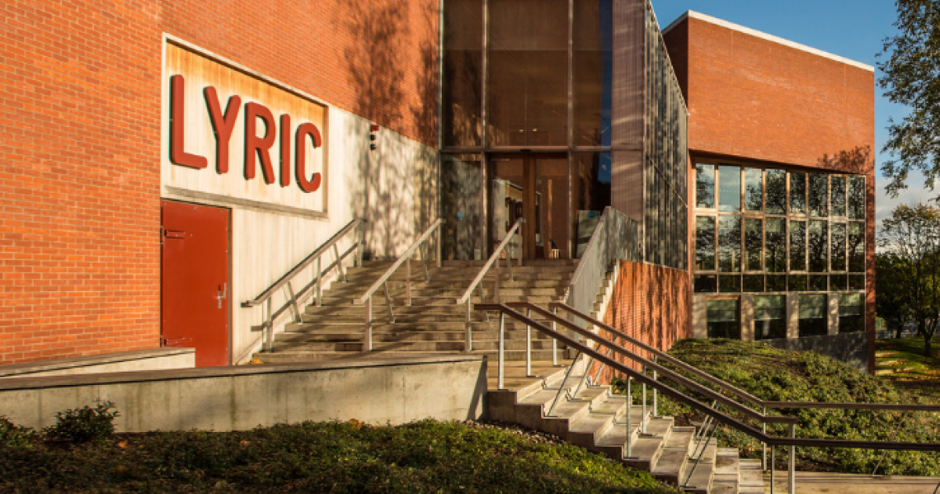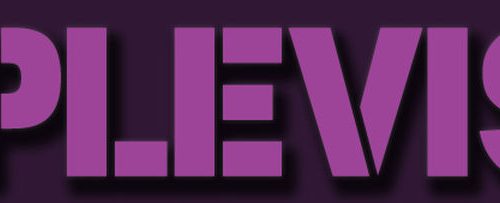Taking that risk to know what’s right for you!
AEL3001: Blog Post 1
Undoubtedly, exploring a career in the arts is best done practically, and this module provided the perfect framework to be able to do that within the industry, expanding my skills and knowledge gained over the years.
However, I had a slight (but critical) issue before I began … what area did I want my work experience to be in?
The benefit of a BA course like Drama, is that most of the skills you learn are multi-disciplinary, they can apply positively to a multitude of different circumstances and sectors; ‘These skills include those of communication (written, oral and performance), of research and analysis, the ability to work independently, interpersonally and in groups, to deadlines and under pressure, with flexibility, imagination, self-motivation and organisation’(2019:6). I knew I wanted my placement to be within the creative arts sector – specifically within theatre – but I didn’t know the exact form it would be in.
To analyse my process of finding the right placement for me, I will be using Borton’s model of reflection. I believe this approach of asking; What? So what? Now what? Helps demonstrate effectively and succinctly the logistics of my ‘real world practice’ (2013:99) and experience of this journey, as while in a creative field, it functions the same way as any other job search!


Daunted by the task ahead, I first researched and explored what different options were open to me, and to simplify things I found six different potential categories of theatre jobs:
- Managerial
- Artistic
- Technical/crew
- Theatre support
- Education (within not-for-profit theatres that have education programs)
- Consultants/services
(2012:11)
And I felt this module was a great opportunity to help me figure out which category could be the right one for me.
As such, I initially emailed a few different local theatre companies with a generic email of interest (Belfast luckily has a brilliant theatre scene so I knew there were lots potential opportunities about), to see if there were any positions open. The first people to get back to me were Bruiser Theatre Company, specifically their Educations Officer, with the opportunity to act as an assistant trainee facilitator on their Summer School. Now, this was a brilliant opportunity to get hands-on experience of a theatre company with a distinct and recognised style that would not only expand my knowledge about methodologies and practices in applied theatre, but also as an actor. The other company to get back to me was the Creative Learning department at The Lyric Theatre and then subsequently the Company Stage Manager, with the great opportunity to join, assist and shadow the Stage Management team throughout the rehearsal process and run of a Main Stage show.
Ultimately, I decided to go with the latter, as I believed the challenge of a technical role like Stage Manager is something that has to be explored practically and the opportunity to do so in a renowned theatre like the Lyric was not something to be missed.
(That being said, after my communications with Bruiser I did happily still complete the summer school role as it was an invaluable experience in of itself!)

This choice was significant as the facilitation offer was something I had experience in – through previous volunteer work and institutions like National Youth theatre – so it was a risk to choose to do something different! In a role that was less familiar to me and as such required a different set of skills. It was also important because it meant the challenge of extending the searching process without a guaranteed result– the Summer School was starting the week after it was offered to me, so I had to decide quickly!
As such it was essential to consider how my skills were relevant, transferable and beneficial to the role of a Stage Manager. This manifested in: email communication over the course of a few months, writing a personalised cover letter for the role, a zoom interview with Aimee (the Company Stage Manager) and Stephen (one of the Deputy Stage Mangers) as well as an offer of a personal recommendation from one of my lecturers David – who was integral in encouraging me to go for this rare opportunity.
Upon reflection, however, I do realise that a key factor in my ability to successfully show myself as a viable candidate for the Lyric, was because of the experience I had already gained from Bruiser. My interpersonal skills and confidence had improved immensely from working in that team for 2 weeks – even if, in the end, I didn’t choose for them to act as my placement.

In the future, I would certainly make sure to tailor my inquires right from the get-go – which I am only able to do now because of the experience of starting this process not knowing what I wanted! The first emails I sent out didn’t specify what exact area I would be interested in, just that I was a drama student looking to help/shadow in any role available on an upcoming production – and while that was true (and really still is!) I do think it was detrimental to my searching process. In hindsight, the most rewarding part of it was the challenge of applying myself to the specific role at The Lyric through the cover letter and the interview as it is something I had only properly done once before, and never actually in the theatre industry. But also, importantly, so was the decision to not just go with the first offer that presented itself to me. I think it’s easy when you’re starting out your career – particularly in the arts – to just say yes to the first thing, and while of course it’s good to get experience wherever you can, it is also worthwhile to know what the right experience is for the right time. And I’m glad to say this was the right one for me!

Bibliography:
Donahue, T. and Patterson, J., 2012. Theatre Careers: A Realistic Guide. 1st ed. Columbia: University of South Carolina Press.
Jasper, M., 2013. Beginning Reflective Practice. 1st ed. Melbourne and London: Cengage Learning.
QAA Membership. 2019. Subject Benchmark Statement: Dance, Drama and Performance. [ONLINE] Available at: https://www.qaa.ac.uk/docs/qaa/subject-benchmark-statements/subject-benchmark-statement-dance-drama-and-performance.pdf?sfvrsn=32e2cb81_5. [Accessed 29 October 2022].
Radio Fright
You May Also Like

The Pen Is Mightier Than The Sword
24 November 2022
Football: A Marketing Tug of War
25 November 2022

